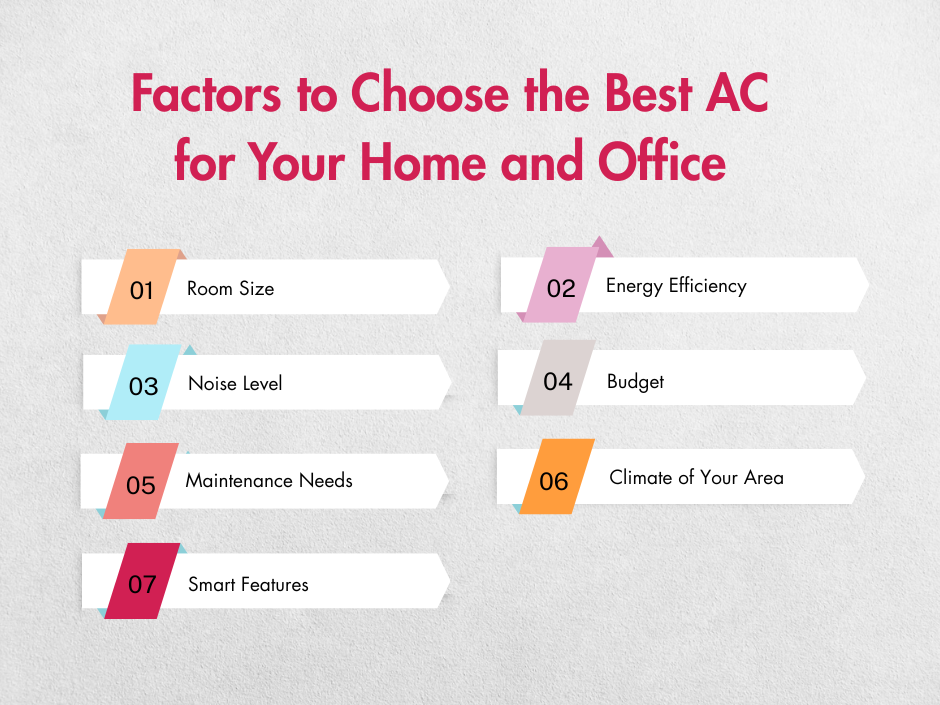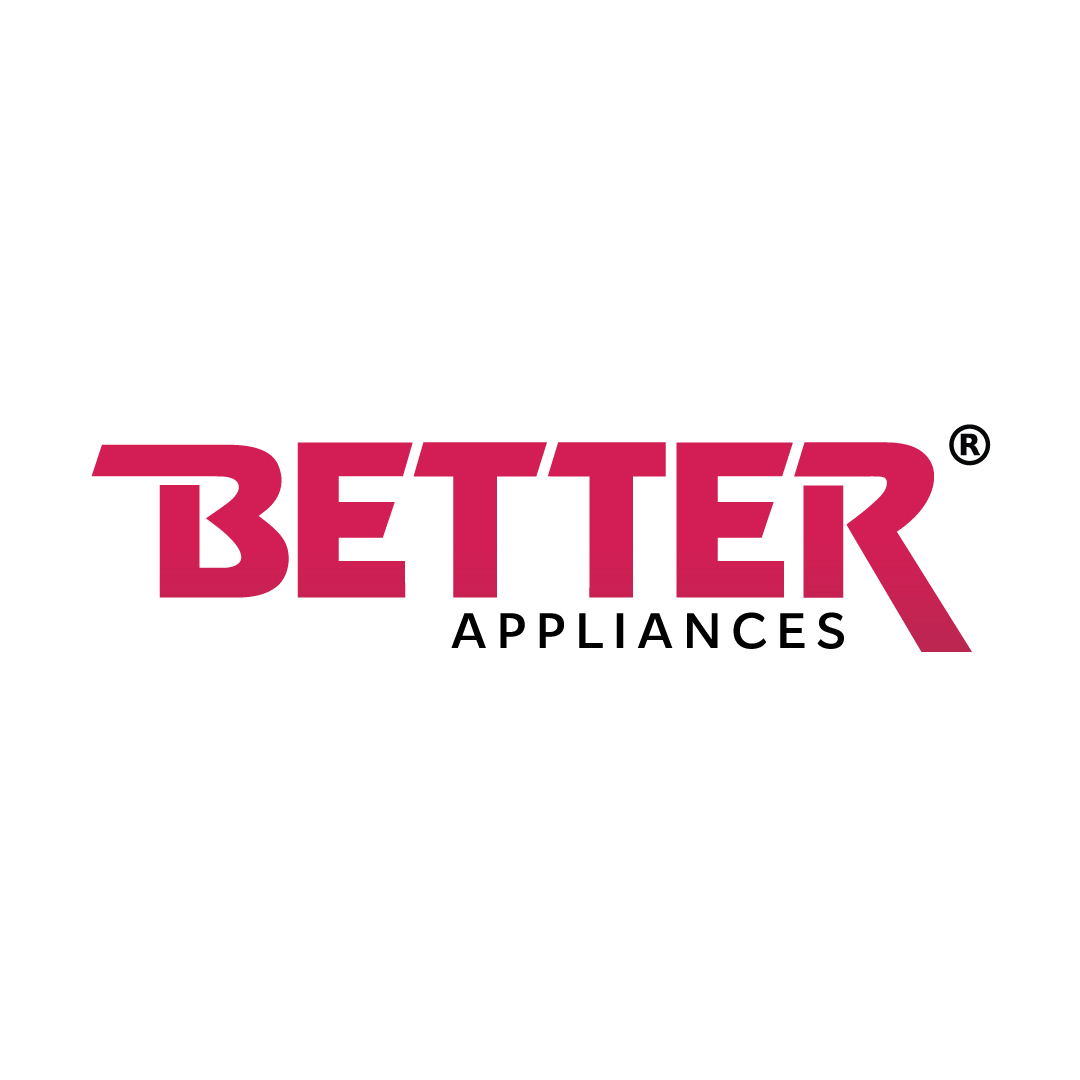How to Choose the Best AC for Your Home or Office? (Including Types)
- Better Appliances

- May 12
- 6 min read

When the temperature is extremely hot or the air is humid and sticky it's not hard to feel shivering, tired and uncomfortable.
This is why air conditioners are an essential part of most workplaces and homes. They can allow us to stay cool and more comfortable.
If you're looking for an efficient and reliable cooling solution, the Better Air Fresh 1 Ton DC Inverter Air Conditioner from Better Appliances offers energy-saving performance ideal for Nepali summers.
But let's face it, buying an AC isn't easy. There are many types such as Window ACs and splits central systems that are portable.
How do you determine what one is best for your needs?
We've got you covered! This blog will discuss the various types of ACs using easy words.
We'll assist you in determining which option is best suited to your home, your budget, and your style of living. So, take a sip of ice-cold water relax, settle in and let's do it!
Learn more: How an Air Conditioner Works? (Complete Guide)
Why Do You Need an Air Conditioner?
Before we dive into the various types, we need to be aware of the reasons the reason why investing in a high-quality air conditioner is essential:
Comfort: Helps keep you cool and helps keep a comfortable temperature indoors.
Health: Filters dust, pollen, and pollutants, improving air quality.
Sleep: Better temperature control helps improve sleep quality.
Productivity: A cooler environment can help you focus better and reduce fatigue.
Different Types of Air Conditioners

Let's look at the most popular kinds of air conditioners that are available in the market today:
1. Window Air Conditioner
Window AC is a single unit that is installed in a window or opening in the wall. The entire system (compressor condenser, condenser, expansion valve and the evaporator) are housed in a single box.
Best for: Small rooms, apartments, or offices.
Pros:
Affordable
Easy to install
Takes up no floor space
Cons:
Noisy
Blocks window view
Not suitable for large spaces
Who should buy it?
If you live in an area that is small (up to 150 square feet) and you are in search of an economical cooling solution window ACs are an excellent choice.
2. Split Air Conditioner
This kind of unit has two components: one indoor unit that is mounted on the wall as well as an outdoor unit that is placed outside the home. They’re connected through pipes and work together to deliver efficient cooling.
A great example is the Better Air Fresh 1.5 Ton DC Inverter Air Conditioner from Better Appliances — ideal for spacious rooms with its quiet operation and energy-saving features.
Best for:
Large to medium-sized rooms living rooms master bedroom.
Pros:
Quiet operation
Looks stylish
Powerful cooling
Energy-efficient models available
Cons:
Costlier than window AC
Needs professional installation
Who should buy it? Ideal for people who want efficient and quiet cooling for a larger space and are okay with spending a little extra.
3. Portable Air Conditioner
It is a moveable unit that can be positioned anyplace in the room. It just requires a power outlet and an opening to let the heat.
Best for:
Small to medium-sized rooms, apartments for rent or other places where permanent installation isn't permitted.
Pros:
Easy to move from one room to another
No installation needed
Great for renters
Cons:
Noisy
Takes up floor space
Less efficient than split/window ACs
Who should buy it?
If you reside in a rental house or move often the portable AC can provide convenience and flexibility.
4. Central Air Conditioner
It is a huge system that cools several rooms simultaneously by using vents and ductwork. Cooling units are positioned on the outside and cold air circulates through vents.
Best for: Large homes, offices, commercial buildings.
Pros:
Cools entire home uniformly
Quiet operation
Can improve resale value of your property
Cons:
Expensive
High electricity consumption
Requires professional maintenance
Who should buy it?
homeowners who have large houses or those looking to cool several rooms with the same system.
5. Ductless Mini-Split System
More flexible model of mini-split ACs and split ACs. systems permit multiple indoor units to relate to one outside unit without the need for vents.
Best for:
Homes with no ductwork, multi-zone cooling, and new developments.
Pros:
Independent control for each room
Energy efficient
Easier installation compared to central AC
Cons:
Higher upfront cost
Wall-mounted units may not appeal to everyone
Who should buy it? Perfect for homes with multiple rooms needing separate temperature controls or places without existing ductwork.
6. Hybrid or Dual Fuel Air Conditioner
These systems combine the features of a gas furnace and an electric heat pump, switching between the two for energy savings.
Best for: Regions with both hot summers and cold winters.
Pros:
Energy-efficient in varying temperatures
Can both heat and cool
Cons:
Expensive
Installation is complex
Who should buy it? Great for homeowners in areas with extreme weather conditions who want year-round comfort.
7. Geothermal Air Conditioner
This eco-friendly system uses the stable temperature underground to heat or cool your home.
Best for: Eco-conscious homeowners with long-term living plans.
Pros:
Very energy-efficient
Long-lasting
Environmentally friendly
Cons:
High upfront cost
Installation requires digging
Who should buy it? If you’re planning to stay in your home for a long time and want to invest in green technology, geothermal is a great (though expensive) option.
Learn More: How to Choose the Best Air Cooler?
How to Choose the Best AC for Your Home and Office?

Now that you know the types, here are some factors to consider before buying:
1. Room Size
Room size is the most important factor. Use this guide:
Up to 150 sq. ft: 0.75 to 1 ton
150 – 250 sq. ft: 1.5 ton
250 – 400 sq. ft: 2 ton
Above 400 sq. ft: Consider multiple units or central AC
For small to medium-sized rooms, the Better Air Fresh 1 Ton DC Inverter Air Conditioner from Better Appliances is a great energy-efficient option that balances cooling power with affordability.
2. Energy Efficiency (Star Rating)
Look for the BEE Star Rating (in Nepal) or SEER rating (in other countries).
Higher rating = lower power bills. Yes, a 5-star AC costs more upfront, but it saves more in the long run.
3. Noise Level
If you’re placing the AC in a bedroom or study, go for a quiet model. Split and central ACs are usually quieter than window or portable units.
4. Budget
Always compare prices, read reviews, and check warranty details.
5. Maintenance Needs
Some ACs need more frequent cleaning or servicing. Window and portable ACs are easier to clean, while central and split systems might need annual professional maintenance.
6. Climate of Your Area
Hot & dry area: Any type of AC works but look for fast cooling.
Humid area: ACs with dehumidifier mode are helpful.
Cold area: Consider heat pump or hybrid systems.
7. Smart Features
Many modern ACs come with smart features like:
Wi-Fi control via smartphone
Voice assistant compatibility (Alexa/Google)
Sleep mode
Timer settings
These may cost more but add convenience.
Top Tips Before You Buy
Check power consumption before purchasing.
Buy during off-season (like winter) for better discounts.
Choose a trusted brand with good after-sales service.
Don’t oversize or undersize your AC both waste energy.
Conclusion
Finding the right air conditioner isn’t as hard as it seems. Once you know what you need and what’s available, the choice becomes much easier.
Whether you're cooling a small room or a big office, don’t forget to check out Air Conditioners from Better Appliances, which will match your needs.
FAQ
Which type of AC is best for a small room?
A window AC or portable AC is best for small rooms (up to 150 sq. ft). They’re affordable, easy to install, and get the job done.
Is a split AC better than a window AC?
Yes, split ACs are usually quieter, cool faster, and look nicer on your wall. But they do cost more and need professional installation.
Can I move a portable AC from one room to another?
Yes! That’s one of the best things about portable ACs. Just roll it over, plug it in, and place the exhaust pipe near a window.
What does “ton” mean in AC?
“Ton” refers to the cooling power of the AC. It doesn’t mean the weight! More tons = more cooling.
Are 5-star ACs worth it?
Yes, they use less electricity, so you save money on your power bill in the long run even if they cost more upfront.





Comments